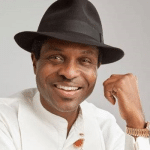Buckingham Palace has refused to release the bones of an Ethiopian prince who was buried at Windsor Castle in the nineteenth century.
Prince Alemayehu was taken to the United Kingdom when he was seven years old and arrived as an orphan when his mother died on the way.
Queen Victoria took an interest in him and arranged for his schooling and burial when he died at the age of 18.
His family, however, wishes for his remains to be returned to Ethiopia.
“We want his remains back as a family and as Ethiopians because that is not the country he was born in,” one of the royal descendants, Fasil Minas, told the BBC.
“It was not right” for him to be buried in the UK, he added.However, a Buckingham Palace official told the BBC that removing his remains could endanger others buried in the catacombs of St George’s Chapel in Windsor Castle.
“It is very unlikely that it would be possible to exhume the remains without disturbing the resting place of a substantial number of others in the vicinity,” the palace said.
The administrators at the chapel were attentive to the need to honor Prince Alemayehu’s memory, but they also had “the responsibility to preserve the dignity of the departed,” according to the statement.
The Royal Household had previously “accommodated requests from Ethiopian delegations to visit” the chapel, according to the statement.
The fact that Prince Alemayehu arrived in the UK at such a young age was the product of imperial action and diplomatic failure.
In an effort to enlarge his empire, the prince’s father, Emperor Tewodros II, sought an alliance with the United Kingdom in 1862, but Queen Victoria did not respond to his letters.
Angered by the quiet, the emperor took matters into his own hands and held certain Europeans hostage, including the British consul. This prompted a massive military operation involving 13,000 British and Indian forces to rescue them.
The force also included a representative from the British Museum.
They lay siege to Tewodros’ mountain castle at Maqdala in northern Ethiopia in April 1868, and overran the defenses in a couple of hours.
The emperor decided he would sooner die than be a prisoner of the British, a decision that made him a hero among his people.
Thousands of cultural and religious artifacts were looted by the British after the conflict. Gold crowns, manuscripts, jewels, and costumes were among them.
Historians estimate that dozens of elephants and hundreds of mules were required to transport the riches, which are now distributed among European museums, libraries, and private collections.
In addition, the British kidnapped Prince Alemayehu and his mother, Empress Tiruwork Wube.
According to Andrew Heavens, whose book The Prince and the Plunder recounts Alemayehu’s life, the British may have assumed this was to keep them secure and protect them from being arrested and potentially slain by Tewodros’ adversaries who were near Maqdala.
Following his arrival in Britain in June 1868, the prince’s plight and position as an orphan drew Queen Victoria’s sympathies. They met on the Isle of Wight, close off England’s south coast, at the queen’s vacation residence.
She agreed to financially maintain him and placed him in the care of Captain Tristram Charles Sawyer Speedy, the man who had accompanied the prince from Ethiopia.
They first lived together on the Isle of Wight before Captain Speedy took him throughout the world, including India.
However, it was agreed that the prince would receive a formal education.
He was sent to Rugby, a British public school, but he was unhappy there. He eventually transferred to the Royal Military College in Sandhurst, where he was bullied.
According to correspondence published by Heavens, the prince had a “hankering” to return home, but that desire was quickly squashed.
“I feel for him as if I knew him. He was dislocated from Ethiopia, from Africa, from the land of black people and remained there as if he had no home,” Ethiopian royal descendent Abebech Kasa told the BBC.
Alemayehu was eventually tutored at a private home in Leeds. However, he grew unwell, presumably with pneumonia, and refused care at one point, believing he had been poisoned.
After a decade in exile, the prince died at the age of 18 in 1879.
His illness had been the subject of national press articles, and Queen Victoria expressed her regret upon his death in her journal.
“Very grieved and shocked to hear by telegram that good Alemayehu had passed away this morning. It is too sad! All alone, in a strange country, without a single person or relative belonging to him,” she said.
“His was no happy life, full of difficulties of every kind, and was so sensitive, thinking that people stared at him on account of his colour… Everyone is very sorry.”
She then made arrangements for his interment at Windsor Castle.
Demands for the body’s return are not new.
The country’s then-President Girma Wolde-Giorgis made a formal appeal to Queen Elizabeth II in 2007 for the body to be returned, but her efforts were futile.
“We want him back. We don’t want him to remain in a foreign country,” Ms Abebech said.
“He had a sad life. When I think of him, I cry. If they agree to return his remains, I would think of it as if he came home alive.”
She had hoped for a favorable response from newly minted King Charles III.
- Squeezing the Poor: The Silent Struggle of Nigeria’s Starving Souls
- Plates of Despair: Nigerian Women Battle Against Deepening Hunger
- Shadows of Hunger: Struggles of Nigeria’s Displaced Children Begging to Eat, Survive on the Streets – Part 2
- Shadows of Hunger: Struggles of Nigeria’s Displaced Children Begging to Eat, Survive on the Streets – Part 1
- ‘This Is Messing Up My Performance’ —Angry Rema Walks Off Stage Over Poor Sound In Atlanta
“Restitution is used as a way to bring reconciliation, to recognise what was wrong in the past,” says Professor Alula Pankhurst, a specialist in British-Ethiopian relations.
He believes the return of the body would be “a way for Britain to rethink its past. It’s a reflection and coming to terms with an imperial past.”






